 Computer ScienceOkitaLearning C# Designed to give you enough familiarity in a programming language to be immediately productive, Learning C# Programming with Unity 3D provides the basics of programming and brings you quickly up to speed. Programming Organized into easy-to-follow lessons, the book covers how C# is used to make a game in Unity 3D. After reading this book, you will be armed with the knowledge required to feel confident in learning more. Youll have what it takes to at least look at code without your head spinning. Writing a massive multiplayer online role-playing game is quite hard, of course, but learning how to write a simple behavior isnt. Like drawing, you start off with the basics such as spheres and cubes.
Computer ScienceOkitaLearning C# Designed to give you enough familiarity in a programming language to be immediately productive, Learning C# Programming with Unity 3D provides the basics of programming and brings you quickly up to speed. Programming Organized into easy-to-follow lessons, the book covers how C# is used to make a game in Unity 3D. After reading this book, you will be armed with the knowledge required to feel confident in learning more. Youll have what it takes to at least look at code without your head spinning. Writing a massive multiplayer online role-playing game is quite hard, of course, but learning how to write a simple behavior isnt. Like drawing, you start off with the basics such as spheres and cubes.
After plenty of practice, youll be able to create a real work of art. This applies to writing with Unity 3D codeyou start off with basic calculations, then move on to the logic that drives a complex game. By the end of this book, you will have the skills to be a capable programmer, or at least know what is involved with how to read and write code. Although you could go online and find videos and tutorials, there is a distinct advantage when it comes to learning things in order and in one place. Most online tutorials for C# are scattered, disordered, and incohesive. Its difficult to find a good starting point and even more difficult to find a continuous list of tutorials to bring you to any clear understanding of the C# programming language.
This book not only gives you a strong foundation, but puts you on the path to game development. K20297 Alex OkitaLearning C#Programmingwith Unity 3DLearning C#Programmingwith Unity 3DAlex Okita Boca Raton London New York CRC Press is an imprint of the Taylor & Francis Group, an informa business CRC Press Taylor & Francis Group 6000 Broken Sound Parkway NW, Suite 300 Boca Raton, FL 33487-2742 2015 by Taylor & Francis Group, LLC CRC Press is an imprint of Taylor & Francis Group, an Informa business No claim to original U.S. Government works Version Date: 20140707 International Standard Book Number-13: 978-1-4665-8653-6 (eBook - PDF) This book contains information obtained from authentic and highly regarded sources. Reasonable efforts have been made to publish reliable data and information, but the author and publisher cannot assume responsibility for the validity of all materials or the consequences of their use. The authors and publishers have attempted to trace the copyright holders of all material reproduced in this publication and apologize to copyright holders if permission to publish in this form has not been obtained. If any copyright material has not been acknowledged please write and let us know so we may rectify in any future reprint.
Except as permitted under U.S. Copyright Law, no part of this book may be reprinted, reproduced, transmitted, or utilized in any form by any electronic, mechanical, or other means, now known or hereafter invented, including photocopying, microfilming, and recording, or in any information storage or retrieval system, without written permission from the publishers. For permission to photocopy or use material electronically from this work, please access www.copyright.com (http://www.copyright.com/) or contact the Copyright Clearance Center, Inc. (CCC), 222 Rosewood Drive, Danvers, MA 01923, 978-750-8400. CCC is a not-for-profit organization that provides licenses and registration for a variety of users. Trademark Notice: Product or corporate names may be trademarks or registered trademarks, and are used only for identifica-tion and explanation without intent to infringe. Visit the Taylor & Francis Web site athttp://www.taylorandfrancis.comand the CRC Press Web site athttp://www.crcpress.comContents Acknowledgments ................................................................................................................................... xix 1. xix 1.
Introduction: What This Book Is About ........................................................................................ 1 1.1 Why Read a Book: Why This Book May or May Not Be for You ......................................... 1 1.1.1 Do I Need to Know Math? ........................................................................................ 2 1.1.2 Programming as a Form of Expression .................................................................... 2 1.1.3 Games as a Stage with Lights ................................................................................... 2 1.3 A Brief History of Computer Programming: How Programming Came to Be ..................... 3 1.3.1 Mechanical Computers ............................................................................................. 3 1.3.2 Logic ......................................................................................................................... 3 1.3.3 Computer Science ..................................................................................................... 3 1.3.4 Software .................................................................................................................... 4 1.3.5 Modern Computer Language .................................................................................... 4 1.3.6 The Future of Computer Languages ......................................................................... 4 1.4 C#: A Flexible Programming Language ................................................................................ 4 1.4.1 C# Paradigm ............................................................................................................. 4 1.4.2 Unity 3D: A Brief History of Game Engines ................................................ 5 1.4.3 Why Use Unity 3D to Learn? ................................................................................... 6 1.4.4 How Does Unity 3D Use C#? ................................................................................... 6 1.4.4.1 How to Tell Unity 3D What to Do ............................................................ 6 1.5 What Is Programming? ........................................................................................................... 7 1.5.1 What Does C# Look Like? ....................................................................................... 7 1.5.2 Learning to Copy and Paste ...................................................................................... 8 1.6 Compiling: Turning Words into Computer Instruction .......................................................... 9 1.7 What Weve Learned .............................................................................................................. 9 1.8 Leveling Up ............................................................................................................................. 9 2. 9 2.
Before You Begin .............................................................................................................................11 2.1 What Will Be Covered in This Chapter ................................................................................11 2.2 Downloading and Installing: It Is Free ................................................................................. 13 2.3 Unity 3D Overview: What Were Looking At .......................................................................14 2.3.1 The Main Panel ....................................................................................................... 15 2.3.1.1 Toolbar .................................................................................................... 15 2.3.1.2 Hierarchy Panel .......................................................................................16 2.3.1.3 Scene and Game View .............................................................................16 2.3.1.4 Inspector Panel ........................................................................................17 2.3.1.5 Project and Console Panel .......................................................................17 2.3.2 Creating a New Project ........................................................................................... 19 2.3.3 A New Unity 3D Project ......................................................................................... 20 2.3.3.2 Library Directory ................................................................................... 21 2.3.3.3 Project Settings Directory ...................................................................... 22 2.3.3.4 Temp Directory ....................................................................................... 22 2.3.4 Summary ................................................................................................................. 23
Next page
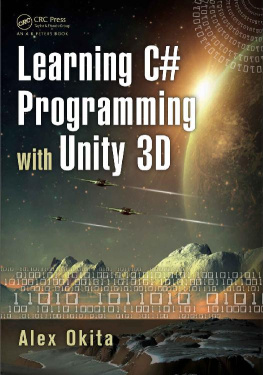
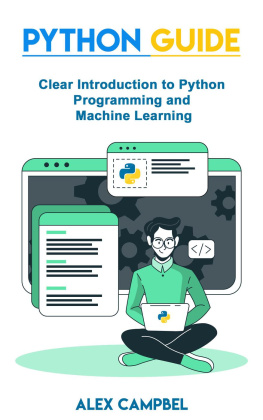

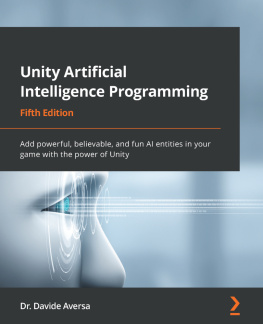
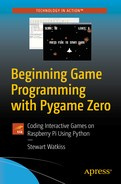
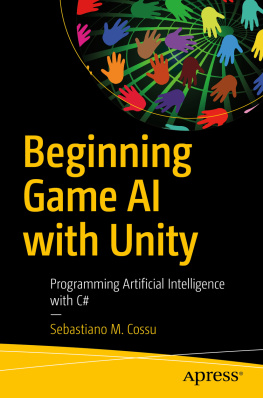
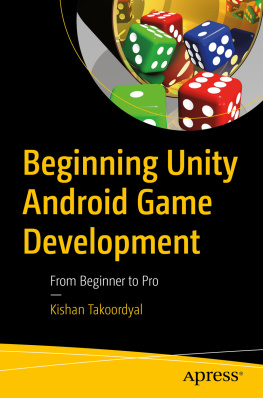
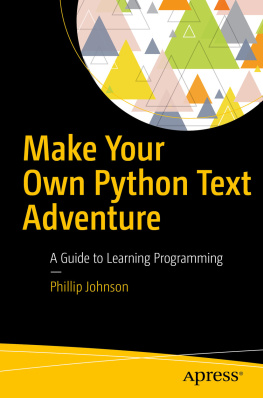
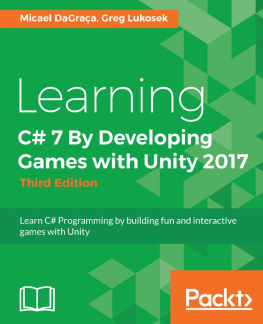

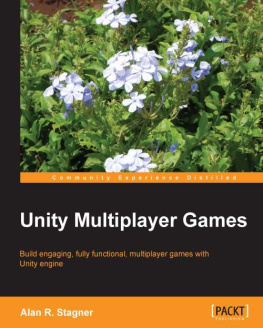
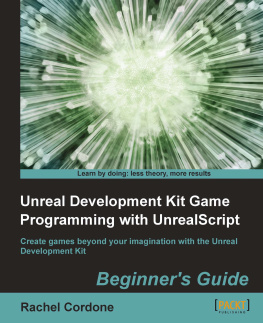
 Computer ScienceOkitaLearning C# Designed to give you enough familiarity in a programming language to be immediately productive, Learning C# Programming with Unity 3D provides the basics of programming and brings you quickly up to speed. Programming Organized into easy-to-follow lessons, the book covers how C# is used to make a game in Unity 3D. After reading this book, you will be armed with the knowledge required to feel confident in learning more. Youll have what it takes to at least look at code without your head spinning. Writing a massive multiplayer online role-playing game is quite hard, of course, but learning how to write a simple behavior isnt. Like drawing, you start off with the basics such as spheres and cubes.
Computer ScienceOkitaLearning C# Designed to give you enough familiarity in a programming language to be immediately productive, Learning C# Programming with Unity 3D provides the basics of programming and brings you quickly up to speed. Programming Organized into easy-to-follow lessons, the book covers how C# is used to make a game in Unity 3D. After reading this book, you will be armed with the knowledge required to feel confident in learning more. Youll have what it takes to at least look at code without your head spinning. Writing a massive multiplayer online role-playing game is quite hard, of course, but learning how to write a simple behavior isnt. Like drawing, you start off with the basics such as spheres and cubes.